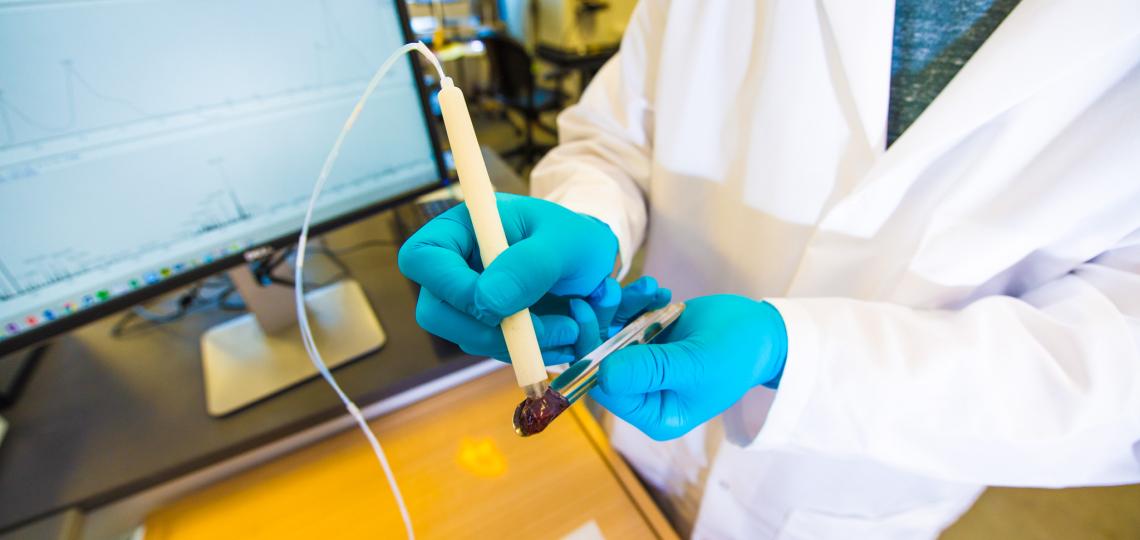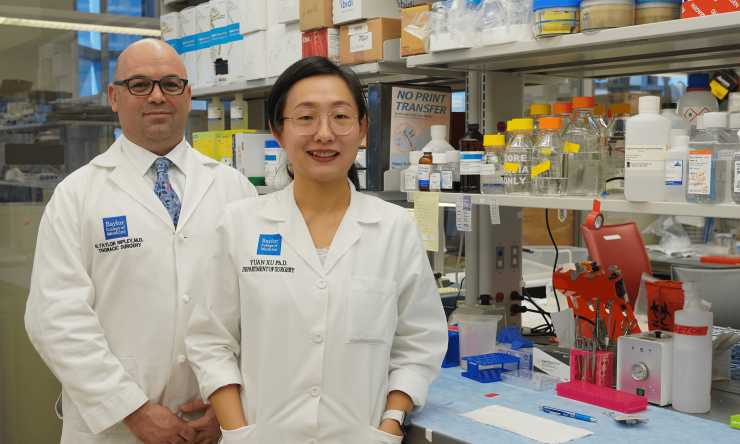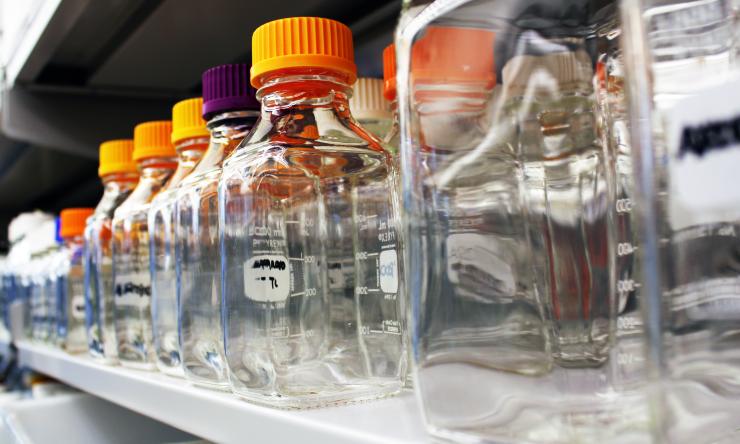
View information on the comprehensive support provided by the Office of Surgical Research for Baylor College of Medicine faculty.
Research in the department led by Vice Chair for Research Dr. Livia S. Eberlin reached new heights in the last year with a record $22 million in total grants, more than 300 current trials and grants and 40% growth in the Blue Ridge Institute for Medical Research listing of grant funding from the National Institutes of Health, projected to land us amongst the top 20 in NIH funding for departments of surgery. Our recent NIH awards highlight significant advancements across multiple fields of medical research, aimed at tackling critical health issues through innovative technologies and strategies.
Other prestigious awards were secured by our faculty this past year, including a $3 million grant from The Marcus Foundation to further develop and validate the MasSpec Pen, a breakthrough device that was developed by Dr. Eberlin and colleagues for intraoperative use and surgical guidance technology.
A Cancer Prevention and Research Institute of Texas (CPRIT) award of $6 million—the first such award for the Department—facilitated the recruitment of Dr. Thomas Milner and launch of a new Center for Biomedical Engineering and Nano-Biophotonics. This unique resource at the College will leverage Dr. Milner’s expertise in biophotonics and optical imaging to forge collaborations to treat disease states ranging from skin cancer to the imaging of intravascular pathology.
An additional department research resource, our Applied Statistics and Machine Learning for the Advancement of Surgery (ATLAS) program, also expanded this year with the recruitment of a new data scientist, advanced biostatistician and new access to institutional and national databases fueled by several grants to ATLAS co-directors Drs. Ravi Ghanta and Abbas Rana.

Research by Division

Research Laboratories
- Aortic Disease Research Laboratory
- ATLAS
- Immune Evaluation Laboratory
- Laboratory for Cardiac Regeneration
- Laboratory for Medical Mass Spectrometry
- Laboratory for Translational Therapeutics
- Laboratory for Translational Thoracic Oncology Research
- Pediatric Surgical Oncology Laboratory
- Surgical Bioengineering Research Group
- Surgical Translational Oncology Lab
- Systems Onco-Immunology Lab
- Virus-Like Particle Translational Oncology Lab








